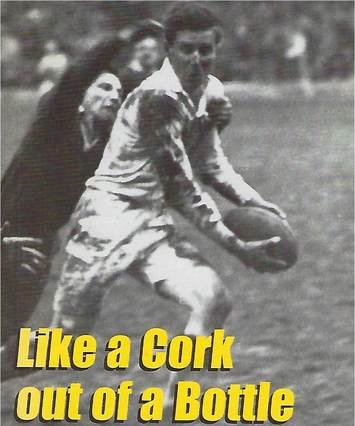I'm a bird person. Since I was twelve. When I think of South Africa, India, America and Australia, I think of bee-eaters, orioles, hoopoes, cardinals and kookaburras - as well as people!
John Buchan described the call of the curlew as 'the true voice of the wilderness - eerie, fantastic, untameable'. A good description of nature itself. To me birds are magical and mysterious.
There is a voice from Isaiah, chapter 40: 'They that wait on the Lord shall renew their strength. They shall mount up with wings as eagles. They shall run and not be weary, and they shall walk and not faint.' If we wait on God, we can soar, run and walk, and need never lose heart.
Do you want to be an eagle? Or rather, are you ready to be an eagle? It looks rather lonely up there, though your eyesight is good and you can see things from a distance.
Of course all other birds have their own uniqueness - the ordinary sparrow, the gracious swallow, the blackbird with its lovely song, the dazzling kingfisher. The favourite bird of St Francis was the crested lark. His vision for his team of friends was that they should all be larks, meaning, I imagine, that larks rise and soar and sing and never stop.
But there is something special about an eagle. Apart from anything, it is rare.
My wife and I were in Durham cathedral. At one end lies Bede and at the other lies Cuthbert - two great saints some twelve centuries ago. They remind me of St Paul's challenge long ago that our calling was to be saints.
But you may not want to be a saint.
The word for 'saint' in Greek is hagios, meaning 'utterly different'. You may not want to be so different from the world that you lose all your friends, or think you will. The demand for personal success and popularity is very strong.
Victor Hugo, in Les Miserables, wrote: 'Contemporary admiration is nothing but shortsightedness.'
C S Lewis, in Mere Christianity, gave a superb picture of how to be a saint and why:
The real problem of the Christian life comes the very moment you wake up each morning. All your wishes and hopes for a day rush at you like wild animals. And the first job each morning consists in shoving them all back, in listening to that other voice, taking that other point of view, letting the other, larger, stronger, quieter life come flowing in. And so on all day standing back from all your natural fussings and frettings, coming in out of the wind.
He goes on:
When Christ said 'Be perfect' He meant that we must go in for the full treatment.
It may be hard for an egg to turn into a bird. It would be a jolly sight harder for it to learn to fly while remaining an egg. We are like eggs at present. And you cannot go on being an ordinary decent egg. We must be hatched or go bad....
... If we let Him He can make the feeblest, filthiest of us into a God, a dazzling radiant immortal creature pulsating with such energy and joy, wisdom and love as we cannot now imagine, a bright stainless mirror.
Flying high and alone, and standing alone, does not mean working alone. The Scriptures are full of the heritage of people past and present whom we join when we walk the road of the saints. We become part of God's network through the world, not isolated stars.
Henry Drummond wrote: 'There is no more dramatic scene in history than when Jesus entered the church in Nazareth and read to the people the programme: it deals with the real world - cold, cruelty, fever, famine, ugliness, loneliness, pain. There is not one burning issue of the human race which is not represented here. Liberty, comfort, beauty, joy. No life that is occupied with such an enterprise could be other than radiant.'
This programme is also spelt out in the book of Isaiah. In fact Jesus quotes it. A part of it, in exact words, is 'to give a garment of praise for a spirit of heaviness'. What a programme - that attempts to remove the world's heaviness of heart.
If we choose to fly high like an eagle, to stand and walk alone as the saints have done, we can be part of this fantastic programme.


